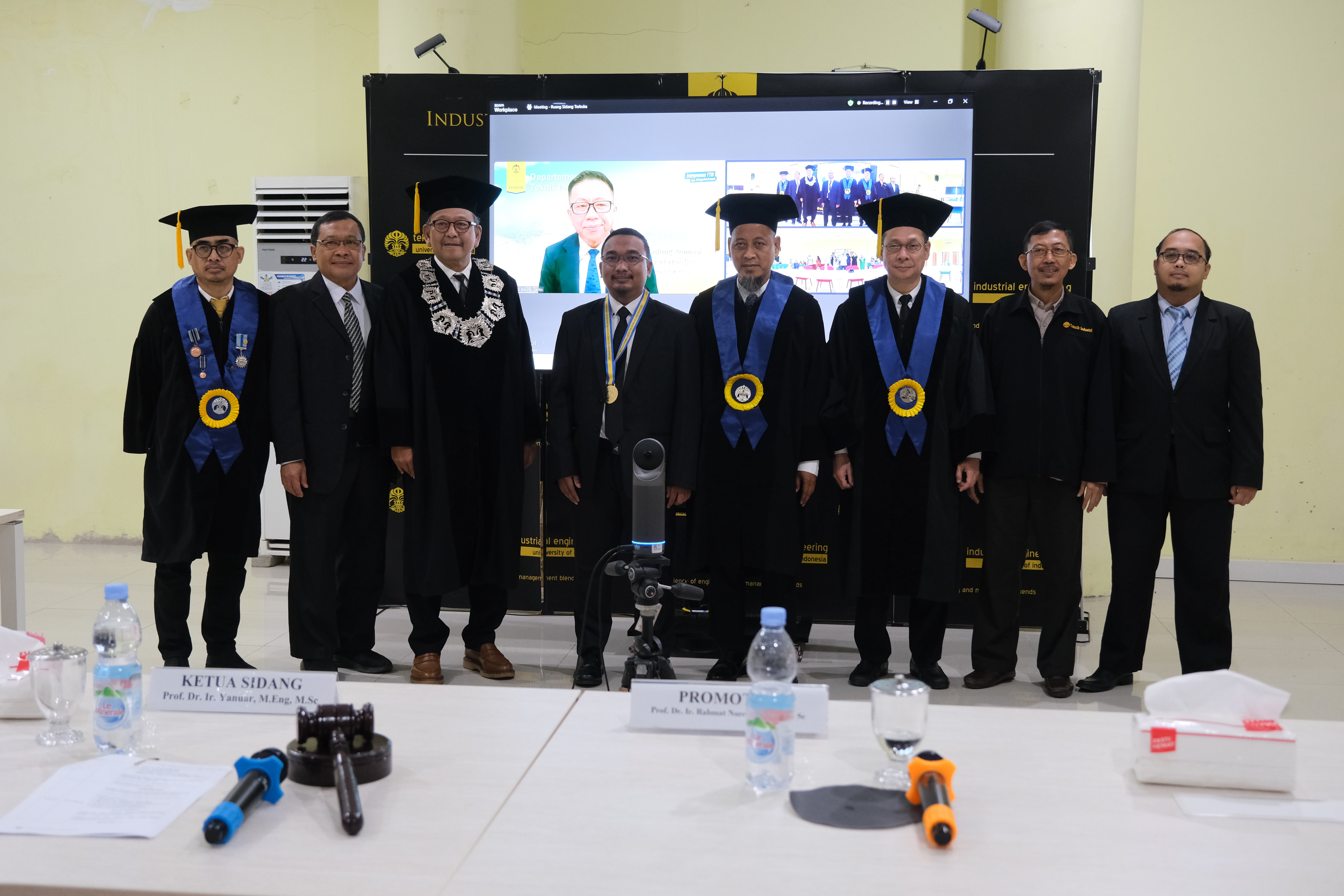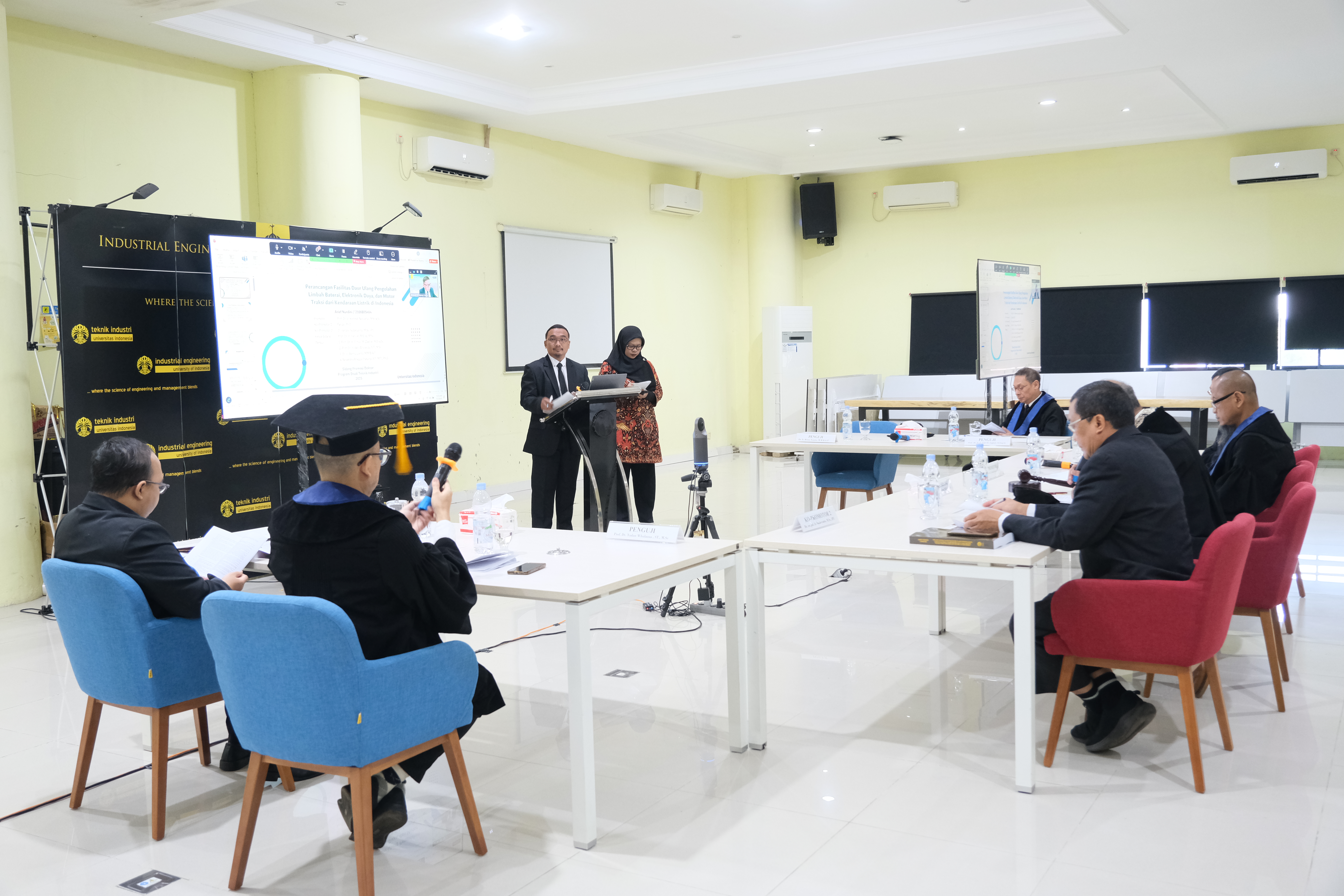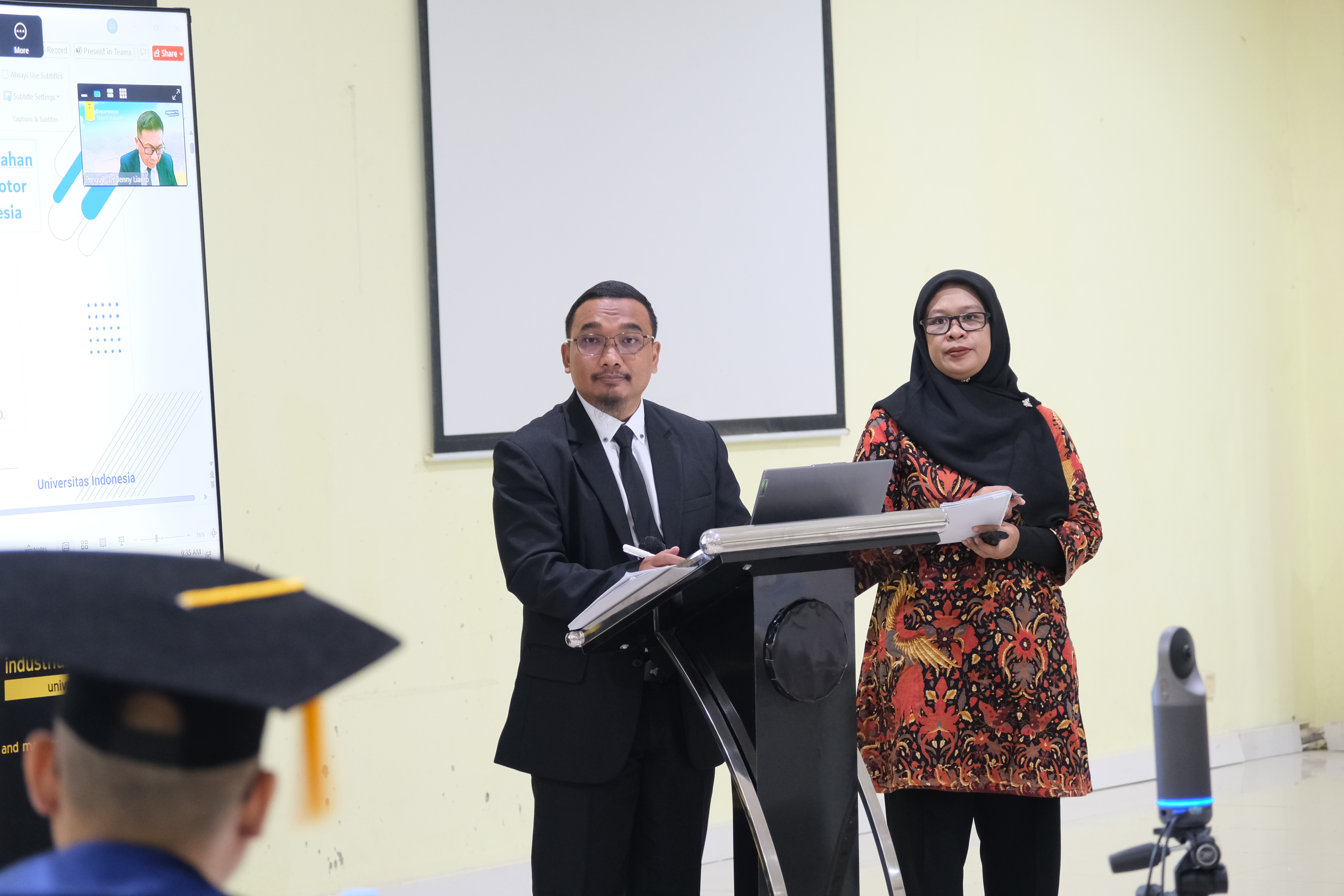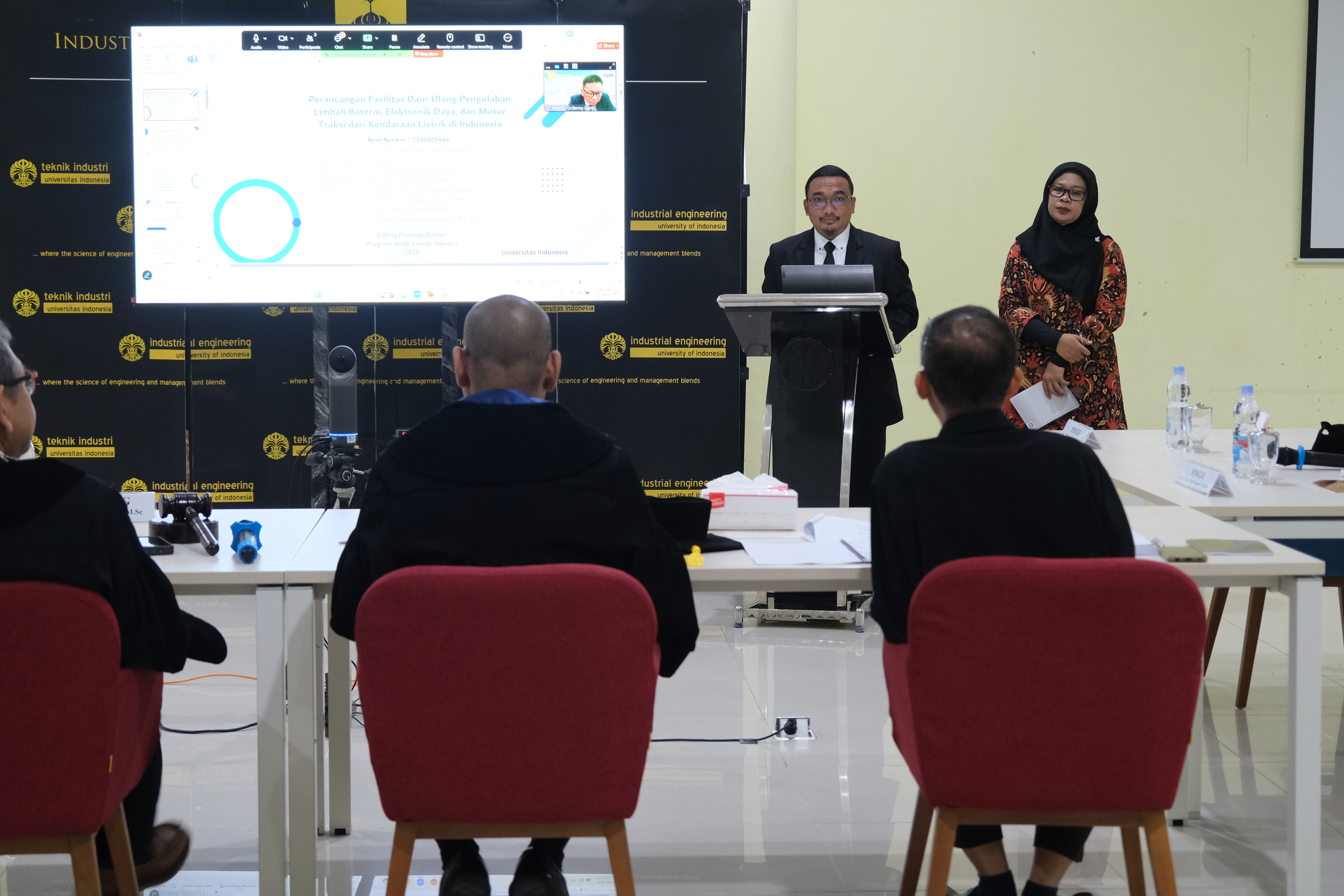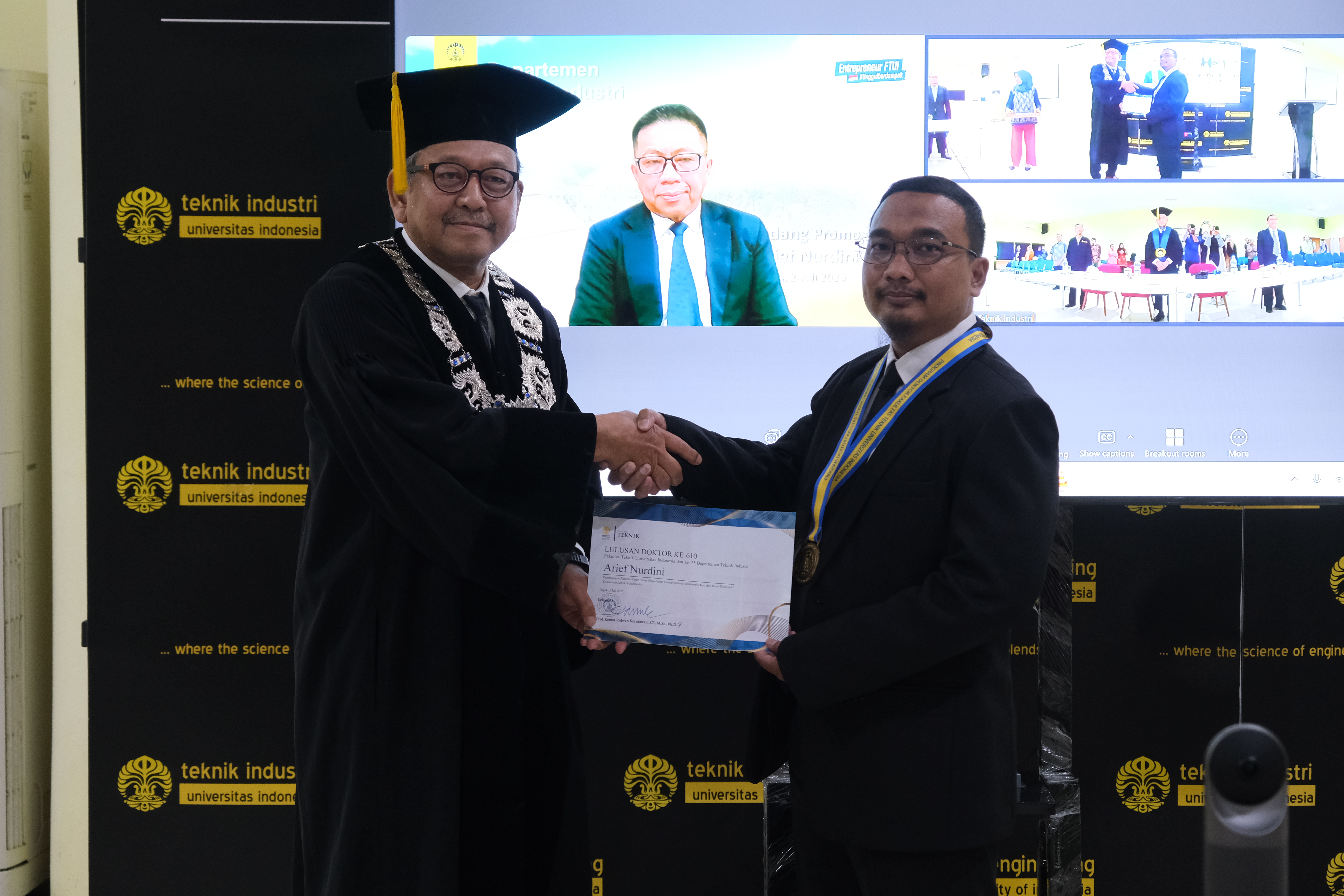The rapid growth of electric vehicles (EVs) in Indonesia presents vast opportunities for reusing electronic components while also posing serious waste management challenges. This issue inspired Arief Nurdini, a doctoral student from the Department of Industrial Engineering, to address the problem in his dissertation titled “Design of a Recycling Facility for Processing Waste Batteries, Power Electronics, and Traction Motors from Electric Vehicles in Indonesia.”
Arief presented the results of his research during an open doctoral defense on July 2 at the DTI Auditorium, 5th Floor, Industrial Engineering Building.
“This research integrates projections of EV growth, the content of strategic metals in used components, and analyses of technology and investment feasibility. Using the Artificial Neural Network (ANN) method, it is predicted that cumulative EV sales in Indonesia will reach 846,340 units by 2035. This projection indicates a significant potential for waste generation with high economic value,” explained Arief.
In determining the appropriate recycling technology, the Multi-Criteria Decision Analysis (MCDA) approach placed environmental aspects as the top priority, followed by technological and economic considerations. Hydrometallurgy was identified as the most optimal method for battery recycling due to its advantages in energy efficiency and material recovery rate.
“Through a multi-criteria approach and comprehensive feasibility assessment, we found that hydrometallurgy is not only the most technically effective method but also the most economically viable to support EV waste recycling in Indonesia,” said Arief.
The research demonstrates that the hydrometallurgical method is the most effective and applicable technological approach for processing electric vehicle waste in Indonesia, particularly for recycling batteries, power electronics, and traction motors. The method’s superiority is supported by the multi-criteria analysis results, which emphasize environmental priorities and technological adoption, coupled with efficient material recovery, controlled energy consumption, and proper residual waste management.
“This research contributes to addressing the challenges of Indonesia’s electric vehicle industry, particularly in sustainability and material circularity. The findings align with FTUI’s vision of supporting the energy transition and advancing green technology development through practical, research-based innovations,” said Prof. Kemas Ridwan Kurniawan, Dean of FTUI.
For his dissertation, Arief graduated summa cum laude with a Cumulative Grade Point Average (CGPA) of 3.9. With this achievement, he becomes the 25th Doctor from the Department of Industrial Engineering and the 610th Doctor within FTUI.
The open doctoral defense was chaired by Prof. Dr. Ir. Rahmat Nurcahyo, M.Eng.Sc. as the promoter, with Farizal, Ph.D. as co-promoter 1 and Dr. rer.pol. Sudaryanto, M.Sc., IPU as co-promoter 2. The examination committee included Prof. Dr. Ir. Yanuar, M.Eng., M.Sc., Prof. Dr. Ir. T. Yuri M. Zagloel, M.Eng.Sc., Prof. Dr. Yudan Whulanza, S.T., M.Sc., Dr. Ir. Benny Lianto, M.M.B.A.T., and Novandra Rhezza Pratama, S.T., M.T., Ph.D.
***
Public Communication Office
Faculty of Engineering, Universitas Indonesia

